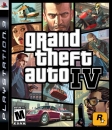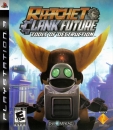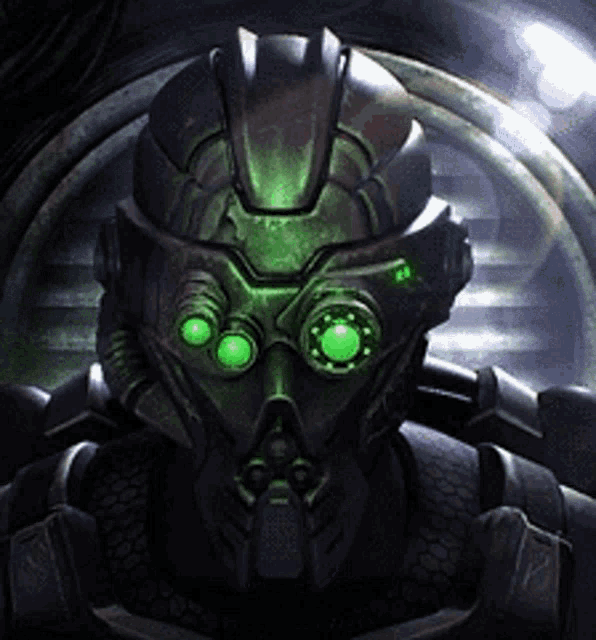Ouch. My post got deleted before this.
This is re: request for Kingmaker advice (which largely should apply to Wrath of Righteous which just adds on more nuances specific to it´s set of enemies and mythic progression subsystem).
There is a lot of variability in group composition and character builds that works fine. I mean, you can find real experts who decide to play ¨solo¨ with one character (except quests that require certain companions´ presence), getting 4-6x the XP advancement since it´s not split and similarly getting to concentrate loot on one character. That tends to rely on specific builds and tactics which aren´t directly mappable to more conventional playstyle.
I would advise a main character (i.e. your personal custom character in addition to NPC companions) be a melee type (barbarian or maybe champion) as that is where the ¨main course¨ of the game is IMHO, and you can benefit from auto-attack function (as well as flanking) for a less intensive playstyle. Actually having two characters of the same class isn´t really a huge problem, more what you want to consider is the different gear needs of different builds. E.g. trying to a build an all-heavy armor party or an all bow-archer party will run into issues with supplying adequately powerful gear for everybody. Although melee builds usually aren´t very weapon-specific, so can flexibly adapt to the variety of magical melee weapons the game drops as loot. In contrast to a bow-focused character, who can expect to be using bows, bows, and more bows the whole game.
For over-all party, I´ve used main character barbarian (melee), Amiri barbarian(melee), Harrim OR Tristan cleric (former off-melee / debuffer, latter more heals/blaster), Linzi bard (buffer, other spells), Ekun ranger (archery, wolf pet), Octavia wizard (she´s set up to do eldritch trickster, but either dump that or minimize it), and Jubilost alchemist (variable damage type specialist, kind-of caster). That is one more than a full roster, I would probably have either a wizard or alchemist but not both... Honestly, I personally don´t like Alchemist, although it´s not really bad per se, and it can do great in certain missions, so YMMV... I would not recommend using the Magus companion ¨Reggie¨ (hybrid figher-wizard) which feels too micro-managed and with limited resources, IMHO you´re better off with ¨normal¨ melee or with ¨real¨ caster (wizard/cleric/sorceror or even bard). But honestly with a bard and cleric, the rest is flexible. Melee or Archery characters are more ¨sustainable¨ than casters in that they only need HP healing, but you will usually be able to rest as often as you want... Usually.
You will want to think about the different skills and how you cover them via your group, they will be useful for the scripted events (and in fact, what gear you have equipped will also effect non-combat kingdom events based on those stats/skills). Overlap is fine, especially since you probably won´t always have a consistent roster, although note that some events will depend solely on your ¨main¨ character and their stats/skills. More than specific builds, you want to be familiar with the game dynamic (which is distinct from original TTRPG). For example, enemies will largely ¨stick¨ to the first character that they can start attacking... So which character you position to get attacked first (and their resilience and other abilities) is important even before getting into RPG-specific rules mechanics. Part of setting up each character´s ¨action bar¨ is designating their ¨auto-attack¨ activity (which could be casting a spell for some characters), although different characters will be more or less stronger when auto-attacking... I.e. a wizard with crossbow auto-attack has that only as back-up for efficiency sakes, while a barbarian or ranger can just keep attacking their target and that is their DPR role. A major thing is a distinction in the game between standard attack and full attack, with the latter happening only when you don´t move very much... Some abilities will only apply to the latter for example, and archers will tend to full attack much more than melee (since the latter may need to move between different enemies). (or for example, one way to play melee cleric is casting spells until the enemy comes to you, where you can full attack, possibly with buffs from your own spells, and not spend turns on moving + standard attack)
Buffing is big in this game, albeit you don´t need it for every encounter, and certainly you don´t need to go ¨all out¨ for most encounters. A distinction is noted in your own class abilities and ¨consumables¨ like scrolls, wands and potions. Items are generally based on base spell effect, whereas class abilities like spell slots tend to scale with level, albeit HOW they do so is different for different types of spells. Commonly, a consumable will have shorter duration and/or smaller bonus value. But usually two different versions of same spell won´t stack. This impacts how and when you will use these buffs, i.e. how big of a battle you anticipate. Healing is a subset of this dynamic, in that the lowest level Cure Light Wounds wands are typically the most efficient way to heal damage, but if you need to heal damage DURING a fight they don´t heal much for using your entire turn, so higher level versions are for that ¨emergency¨ usage. AC or Armor Class is the typical way to avoid damage from attacks (albeit there is other mechanics like Blur which also work), and there is many bonus types that apply (Armor, Natural Armor, Dodge, Luck, Morale... I can´t remember all honestly). Since each category escalates non-linearly, you want to utilize small bonuses from each category before splurging for the next highest number in a category (and the loot will largely follow this approach). Like consumables, permanent items may have lower bonus than what a spell can achieve, so the latter is more for special apex fights. Items like Resist/Protection vs Energy, Remove Poison/Curse, Remove Blindness, etc will be important sooner or later.
If you want, you can read the rules of the original TTRPG game, although note that they aren´t exactly the same: for example Flanking isn´t so particular about opposite sides of a grid square, you just need to both be threatening the same enemy. www.aonprd.com (although note the TTRPG has entirely new 2nd edition which plays very differently... I wouldn´t really worry about every detail of the 1st edition as the 2nd edition plays much smoother IMHO, but the old rule-set might help understand the under-the-hood mechancs of the CRPG)
I will say that the ¨turn based¨ mode/mod, is kind of a mixed bag, as the core game and AI is not built around it. Personally, despite understanding the core TTRPG very well, I am not hung up on trying to maximally adhere to it, so I play with the ¨real time with pause¨ mode the game was built on. Once you can manage the basic rules well enough, I would highly advise to examine all of the many game settings, particularly to do with the real time with pause. While you can always pause ¨manually¨ at any time, I find it useful to tweak which events (or sub-events) trigger the auto-pause. The difficulty settings are honestly very obscure, and not well explained in the menu. Basically there is one which determines enemy ¨stats¨ which translate to Hit Points and Saving Throws, Attack Bonus, Spell DC etc. Another setting will add arbitrary amount to DCs... including mechanics affected by ¨stats¨, so don´t over-do it by playing hard on both. In fact, you shouldn´t try playing on any hard setting until you understand the game very well. It´s not one of those ¨hard is normal¨ games, so don´t take it personally  I personally play on the first ¨harder¨ setting, which supposedly matches TTRPG the closest (although that´s not even a valid comparison), but if you don´t know rules well the easier ones can be better experience. To given an idea, in the first section of game, before you have many magic items, I will often pre-buff even using weak cantrips to just eke out an extra +1 here or there. Once you get more magic items that becomes less needed, but if you don´t understand how to do that, that beginning section would be harder.
I personally play on the first ¨harder¨ setting, which supposedly matches TTRPG the closest (although that´s not even a valid comparison), but if you don´t know rules well the easier ones can be better experience. To given an idea, in the first section of game, before you have many magic items, I will often pre-buff even using weak cantrips to just eke out an extra +1 here or there. Once you get more magic items that becomes less needed, but if you don´t understand how to do that, that beginning section would be harder.
It´s been errata´d to be more obvious, but an early mission features enemies which just can´t be damaged by normal weapons, because they are a swarm which weapons can´t adequately target. So, you need area of effect stuff, which the game supplies via Fire Flasks. There are other enemies that are vulnerable vs certain damage types like Fire or Acid, or which even need those damage types to stop their Regeneration. The game will automatically give you info about some enemies, when your characters pass a knowledge check using skills like Nature or Religion... That info appears in the combat log (which realistically you can do only while paused). You can also get the break-down of any roll (attacks, saving throws etc) which can reveal further things about the enemy. Even for regular enemies with nothing special, I think reading the breakdowns is useful for learning the underlying game mechanics.
Finally, there are some combats that are just crazy tough, and not even main plot ones but just random encounters or optional combats. In some ways these are like puzzles, knowing how to neutralize/weaken their threat, while knowing how to most efffectively damage them. I remember one with were-rats in a cave relatively early which I found basically impossible, although later on (the location doesn´t go away) it will be easy. There probably was some trick, but I just decided to skip it until higher level. I would say don´t get hung up those if they aren´t main plot elements that are required. One final tip: Every character getting Blind-Fight by Level 15 or so will be critical in late-game content. (although it may be relevant earlier, especially vs. enemies that can blind you)
Last edited by mutantsushi - on 24 July 2024






















 I personally play on the first ¨harder¨ setting, which supposedly matches TTRPG the closest (although that´s not even a valid comparison), but if you don´t know rules well the easier ones can be better experience. To given an idea, in the first section of game, before you have many magic items, I will often pre-buff even using weak cantrips to just eke out an extra +1 here or there. Once you get more magic items that becomes less needed, but if you don´t understand how to do that, that beginning section would be harder.
I personally play on the first ¨harder¨ setting, which supposedly matches TTRPG the closest (although that´s not even a valid comparison), but if you don´t know rules well the easier ones can be better experience. To given an idea, in the first section of game, before you have many magic items, I will often pre-buff even using weak cantrips to just eke out an extra +1 here or there. Once you get more magic items that becomes less needed, but if you don´t understand how to do that, that beginning section would be harder.


























